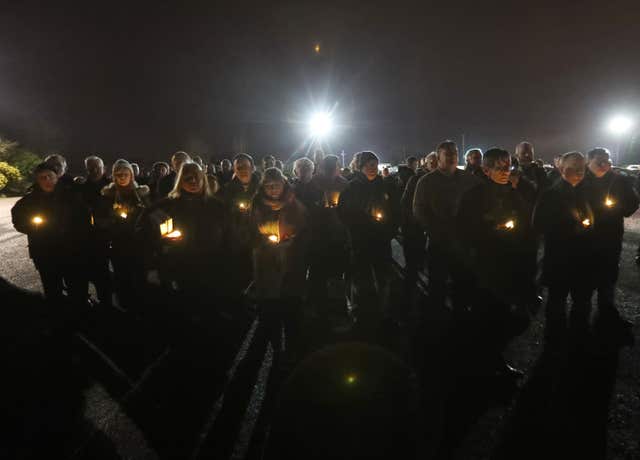MP calls for ‘statutory protection’ for British soldiers following Clonoe ruling
Conservative former minister Sir David Davis said he would find it hard to imagine a ‘more clear cut case’.

British soldiers should be given protections in law, a Conservative former minister has said following a ruling that SAS soldiers were not justified in killing four IRA members in a 1992 ambush.
Sir David Davis said he found it hard to imagine a “more clear cut case which allows firing without challenge” than in the Clonoe incident and described the coroner’s ruling as “demonstrably wrong”.
He welcomed the UK Government’s decision to seek a judicial review into the inquest ruling, adding statutory protection must be put in place for those soldiers who served in Northern Ireland regardless of the outcome.
In February, coroner Mr Justice Michael Humphreys found that the soldiers did not have an honest belief in the necessity of using lethal force.
Four Provisional IRA members – Kevin Barry O’Donnell, 21, Sean O’Farrell, 23, Peter Clancy, 19, and Daniel Vincent, 20 – were shot dead by the soldiers minutes after they had carried out a gun attack on Coalisland RUC station in Co Tyrone.
Speaking in the Commons, Sir David (Goole and Pocklington) said: “Remember, this was happening on a dark February night at about 10.45pm. Issuing a challenge under these circumstances could have amounted to collective suicide.
“Circumstances like this are precisely why the yellow card rules allow the soldier to fire without challenge when the danger is too great.
“Indeed, I find it hard to imagine a more clear cut case which allows firing without challenge than the one we see here.”
Sir David went on to say: “The (Ministry of Defence) is, quite properly, seeking judicial review of this inquiry. But even if they win, even if they win, we must put in place statutory protection for our soldiers.”

He added: “These are men who served our country with honour, heroism of skill, sometimes in the face of the most incredible danger. They are now no doubt, hoping for well earned, peaceful retirement, not a future of endless stress and psychological torture.
“If the Government leaves them open to persecution, it will, frankly, be shameful, and so only to further the IRAs attempt to rewrite history of Northern Ireland.”
Conservative former leader Sir Iain Duncan Smith, who served in Northern Ireland during his time in the Scots Guards, said: “We have a duty of protection for those who put their lives on the line – to protect our freedoms and our justice – to make sure that it’s fair.
“If we forget them for any moment then we are not worthy of being here for they do not have a voice and they are not able to say ‘no’ when they’re ordered into situations where they may die.
“No other army in the world could have done what they did in Northern Ireland, what we did, that put up with so much and restrained ourselves with such dignity.”
In his ruling Mr Justice Humphreys said that no attempt was made by the soldiers to arrest any of the members of the IRA unit and the operation was not planned and controlled in a way to minimise to the “greatest extent possible” the need to use lethal force.
He said that in his statement, one of the soldiers claimed he opened fire when he believed those in the lorry were about to open fire on the patrol, however, he found that the IRA members were attempting to descend the lorry and run away and they could not have posed a threat.
It found that one of those killed – Mr O’Donnell – was shot in the back while attempting to flee and then again in the face while lying incapacitated on the ground.
Northern Ireland Secretary Hilary Benn confirmed the Ministry of Defence has written to the coroner outlining its intention to apply for a judicial review.
He told MPs: “In its view the findings of the coroner do not properly reflect the context of the incident … nor the challenging circumstances, the context, in which members of the armed forces were serving in Northern Ireland.
“The Ministry of Defence has also confirmed that it is funding the veterans in question to seek a judicial review and is continuing to provide them with welfare support.”
On the approach to legacy issues, Mr Benn said the Government is “absolutely committed to trying to develop legacy mechanisms that are compliant with human rights” and made clear his support for the European Convention on Human Rights.
He added he hopes the approach “can command a degree of public confidence across communities” in Northern Ireland and Great Britain.
Sinn Fein MP Cathal Mallaghan (Mid Ulster), in a statement outside the Commons, said the coroner “came to his findings in this case based on the facts”.
He said: “It is disgraceful that the British Government is funding two challenges to the Clonoe inquest ruling that found the killing of four men in February 1992 was not justified.
“This is yet another cynical and cruel attempt by the British government to deny families truth and justice.”




